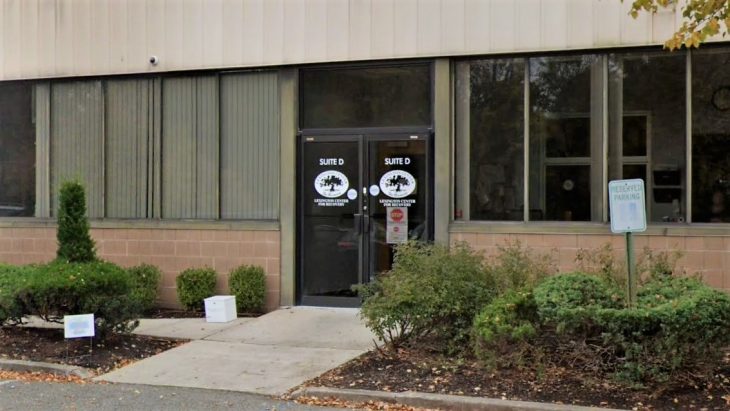Lexington Center for Recovery Rockland County Methadone Treatment Program

About Lexington Center for Recovery Rockland County Methadone Treatment Program
The Rockland County Opioid Treatment Program (OTP) provides medication-assisted treatment (MAT) for adults facing opioid use challenges in Valley Cottage and across Rockland County, New York. It’s nestled on Executive Blvd in Valley Cottage, along the lower Hudson Valley near the Palisades and the Hudson River.
As part of the Lexington Center For Recovery, Rockland OTP plays a vital role in strengthening local communities by helping residents overcome opioid use and re-engage as active, healthy members of society. Folks with co-occurring mental health challenges are also supported through integrated treatment that fosters whole-person healing.
The clinic is reputed for their accessible and flexible hours, including Saturday and Sunday availability. This makes it easier to get the support you need even if you’ve tight weekday schedules.
Methadone Medication For Stability and Abstinence
Rockland OTP is essentially a methadone maintenance clinic. Taken as prescribed and at the right dosage, methadone helps reduce withdrawal symptoms and cravings without producing a euphoric high. This gives you the strength and stability to re-engage with daily life while staying grounded in your recovery.
As you attend therapy sessions to address underlying emotional issues and build effective coping skills necessary to manage triggers, prevent relapse and reinforce healthier habits. Therapeutic engagement further helps you better understand yourself, navigate daily challenges and stay committed to long-term healing.
Medical and Psychiatric Support
Your tailored care may even include medical and psychiatric support such as medication management, to address co-occurring mental health conditions and help you feel more emotionally balanced. As part of ongoing support for long-term stability, this provider may connect you with local or county resources to assist with housing, employment and other personal recovery needs.
| Levels of Care | Detox Service Setting | Programs | Payment Options | |||
|---|---|---|---|---|---|---|
|
In outpatient therapy, you’ll attend therapy sessions several times each week while living at home. This is ideal if you have a strong support system and a lower risk of relapse. Outpatient treatment offers flexibility to maintain work, school or family obligations. |
||||||
|
Outpatient detox gives you access to medically supervised withdrawal services while still allowing you to live at home. You’ll attend a clinic for treatment and monitoring. This flexible option is suitable for those with mild to moderate withdrawal symptoms who have strong support systems. |
||||||
|
Adult programs address the substance use and life challenges specific to adults. Therapists can deliver sessions in individual, group and family settings. Services often include job support and life skills training in a structured environment. |
Alcohol detox programs offer medical support to help individuals withdraw safely from alcohol. Your care team may use medications to ease your symptoms and provide medical monitoring to address complications. |
Drug detox programs support individuals who are withdrawing from addictive substances like cocaine and heroin. Medical support helps you manage symptoms in a controlled and safe environment so you can achieve initial sobriety. |
Men's programs address substance use while also considering the social pressures, family roles and mental health concerns that are specific to men. You’ll learn healthy coping mechanisms as you build emotional resilience and develop communication skills. |
Opioid detox uses medications to ease severe withdrawal symptoms. It also includes medical supervision to help you manage potential complications. These services allow you to stabilize and begin a recovery plan. |
Women's programs offer a safe and supportive space to focus on gender specific issues such as trauma, family roles and mental health conditions. Therapists tailor the sessions to address women's needs and foster empowerment in a healing and nurturing environment. |
Young adult programs are designed for individuals who are transitioning into adulthood. Topics of discussion typically include identity, independence and peer relationships. Providers may also offer life skills training and career support. |
|
Payment Assistance
|
Medicaid
|
Private Insurance
|
Self Pay
|
Levels of Care
In outpatient therapy, you’ll attend therapy sessions several times each week while living at home. This is ideal if you have a strong support system and a lower risk of relapse. Outpatient treatment offers flexibility to maintain work, school or family obligations.
Detox Service Setting
Outpatient detox gives you access to medically supervised withdrawal services while still allowing you to live at home. You’ll attend a clinic for treatment and monitoring. This flexible option is suitable for those with mild to moderate withdrawal symptoms who have strong support systems.
Programs
Adult programs address the substance use and life challenges specific to adults. Therapists can deliver sessions in individual, group and family settings. Services often include job support and life skills training in a structured environment.
Alcohol detox programs offer medical support to help individuals withdraw safely from alcohol. Your care team may use medications to ease your symptoms and provide medical monitoring to address complications.
Drug detox programs support individuals who are withdrawing from addictive substances like cocaine and heroin. Medical support helps you manage symptoms in a controlled and safe environment so you can achieve initial sobriety.
Men's programs address substance use while also considering the social pressures, family roles and mental health concerns that are specific to men. You’ll learn healthy coping mechanisms as you build emotional resilience and develop communication skills.
Opioid detox uses medications to ease severe withdrawal symptoms. It also includes medical supervision to help you manage potential complications. These services allow you to stabilize and begin a recovery plan.
Women's programs offer a safe and supportive space to focus on gender specific issues such as trauma, family roles and mental health conditions. Therapists tailor the sessions to address women's needs and foster empowerment in a healing and nurturing environment.
Young adult programs are designed for individuals who are transitioning into adulthood. Topics of discussion typically include identity, independence and peer relationships. Providers may also offer life skills training and career support.




